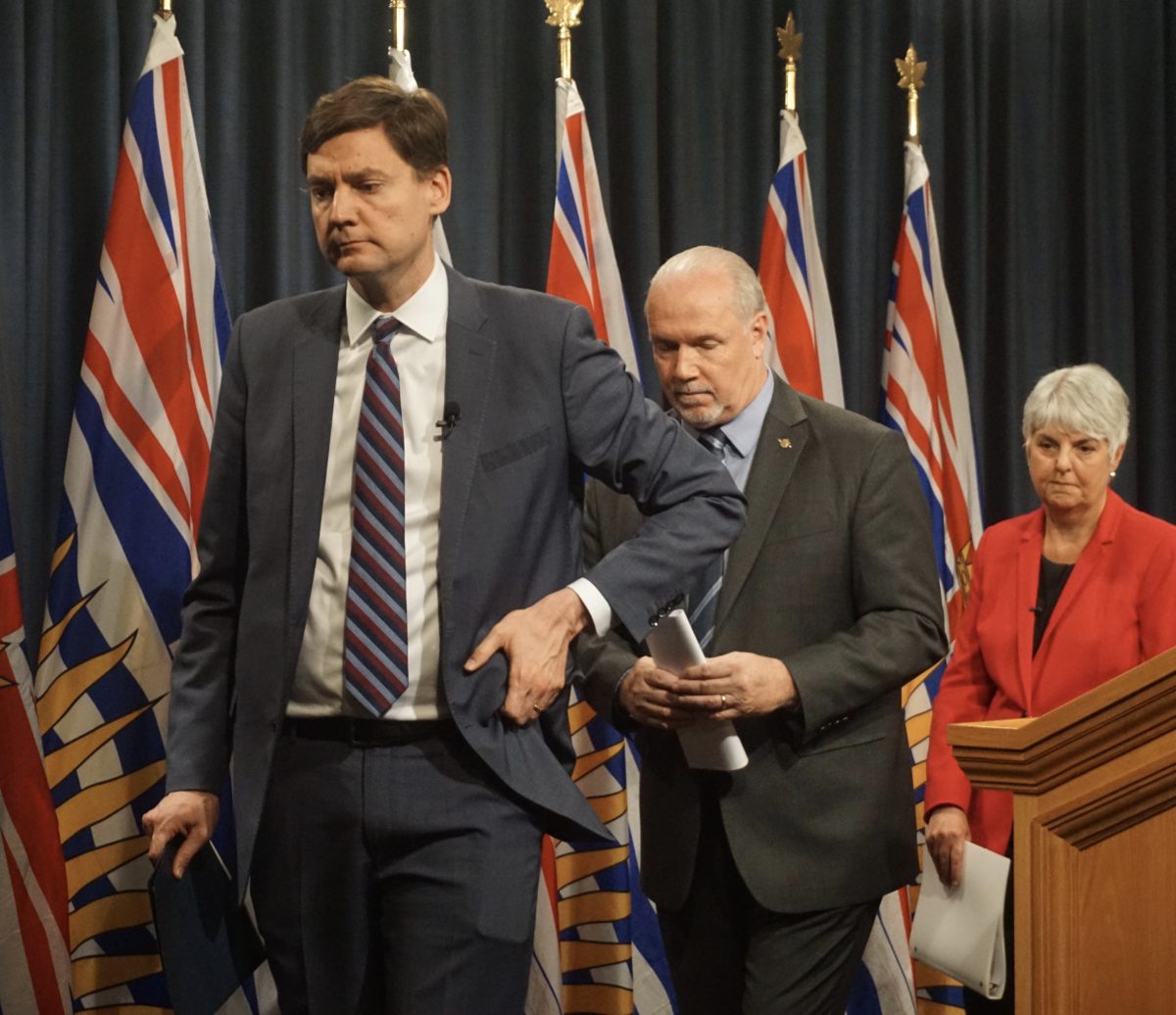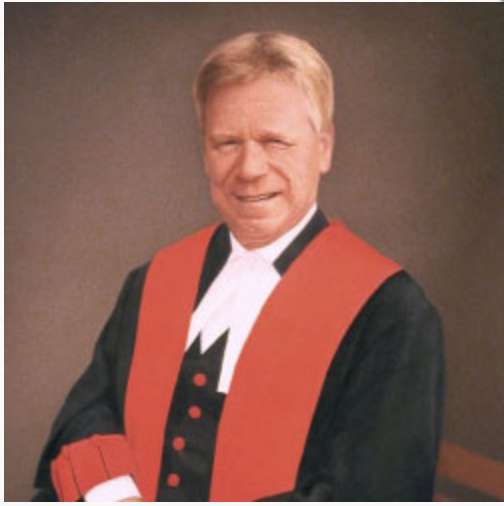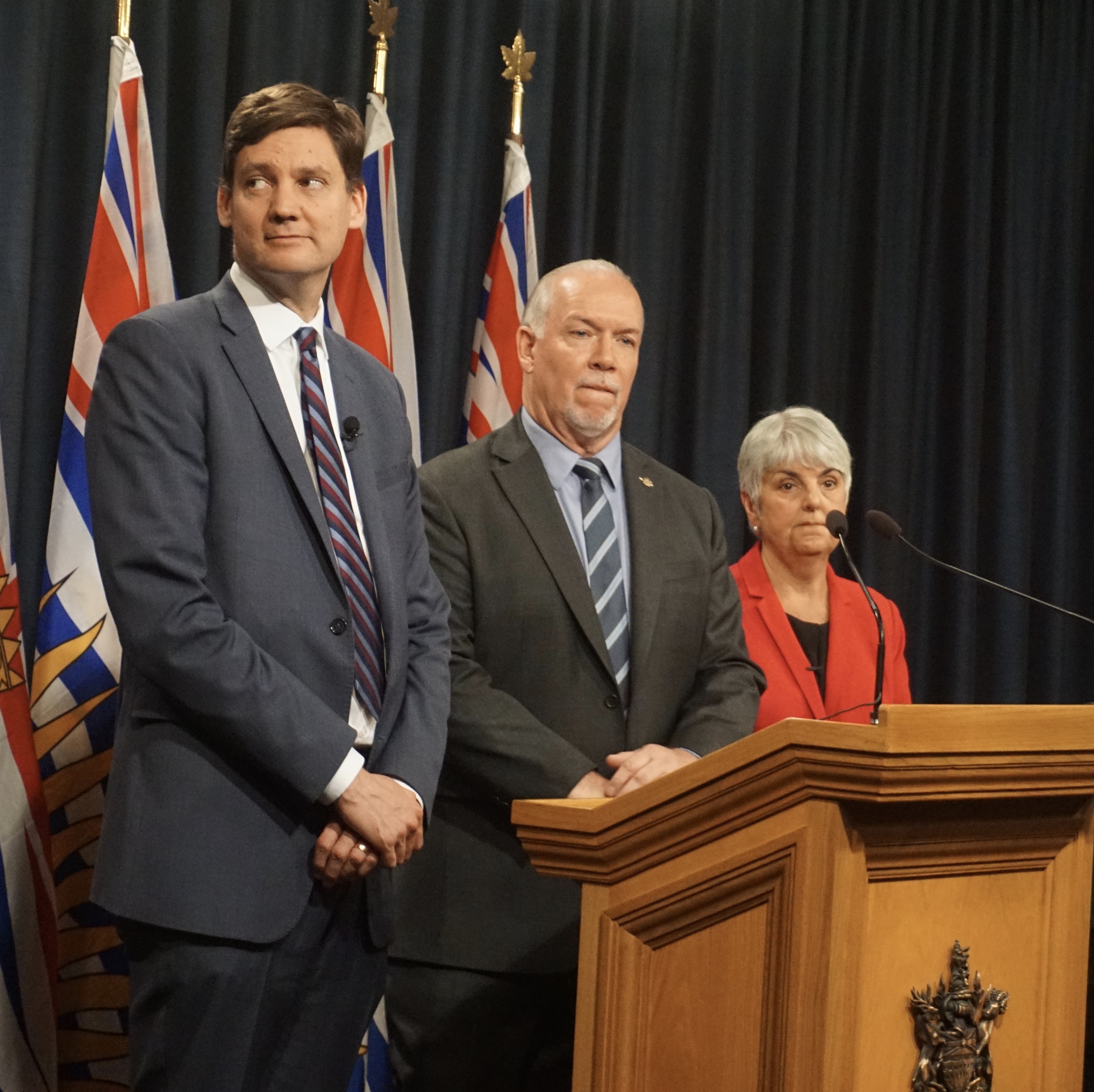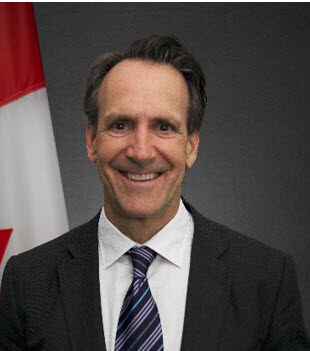
Bob Mackin
VICTORIA: The Cullen Inquiry is on.
After months of public pressure and speculation, B.C. Supreme Court Justice Austin Cullen was appointed by Premier John Horgan and the NDP cabinet May 15 to conduct a public inquiry into money laundering in B.C.
Cullen will have broad power to order testimony and documents, with an interim report expected in 18 months and a final report by May 2021.

Justice Austin Cullen
“There is nobody in British Columbia that is not potentially compellable,” Attorney General David Eby told reporters in Victoria.
“It’s in the commissioner’s hands who the commissioner calls to testify.”
The next provincial election is scheduled for October 2021 and the inquiry will cast light in various areas, including the previous BC Liberal government which lasted from 2001 to 2017.
“Perhaps other governments were intoxicated by the revenues that kept coming in, there’s certainly evidence of that, we’ll see if the commissioner finds that,” Horgan said. “The revenues that come and go are a key part of delivering services, without any doubt, but I think all British Columbians want those revenues to arrive in a legitimate way, not at the expense of families who lose precious loved ones to an opioid crisis that is being fuelled by organized crime.”
The announcement comes the week after the release of a study led by a former deputy minister, Maureen Maloney, that estimated $7.4 billion was laundered in the B.C. economy last year. Maloney’s panel estimated $5 billion was in real estate. Two reports by the money laundering expert and former RCMP head for Western Canada, Peter German, studied the issue and found links between high-stakes casino gambling, the real estate market and the illicit drug trade in the province.

David Eby (left), John Horgan and Carole James, May 15 in Victoria (Mackin)
Horgan said that the work of German and Maloney set the stage for Cullen to begin his work at an advanced stage, but Horgan did not announce a budget for the inquiry.
“We will not constrain the commissioner by putting a tag line on it for the cost,” Horgan said.
“We know that the value for money of making sure the public has a good understanding of how we got here, and more importantly how we can stifle this activity and eradicate it at all possible.”
Eby said the inquiry will seek answers “about who knew what, when and who is profiting from money laundering in our province.”
Horgan called money laundering “a national problem,” but B.C. is ahead of other jurisdictions.
Eby said B.C. has had discussions with federal authorities, but conceded that similar discussions have not been held with municipal governments in B.C., whose jurisdictions have control over land use.
The cabinet order authorizing Cullen’s appointment gave him broad terms of reference. He could go back to the 1990s and look at decisions made by the previous NDP governments, which opened the door to casinos in the province, as well as the impacts of a federal Liberal decision to shut down the Ports Canada Police on the West Coast.
Cullen was appointed to the B.C. Supreme Court in 2001. He was associate chief justice from 2011 to 2017. Cullen’s inquiry will probe the growth, evolution and methods of money laundering in gambling, real estate, financial services, corporations, luxury goods and professional services, including legal and accounting.
The announcement comes just over two years since Eby and a federal NDP Member of Parliament, Don Davies, commissioned an English translation of the third volume of a Quebec report into public and private-sector construction corruption.
The Charbonneau Commission, formally titled the Commission of Inquiry on the Awarding and Management of Public Contracts in the Construction Industry, held 261 days of hearings beginning in 2011 and released its final report in late November 2015. That inquiry cost more than $40 million and considered a 15-year period, from 1996 to 2011. Almost 300 witnesses testified and the commission reviewed 3,600 documents.
It resulted in charges and convictions of several businesspeople and politicians in Quebec, as well as campaign finance reforms and an anti-corruption policing squad.
Support theBreaker.news for as low as $2 a month on Patreon. Find out how. Click here.











